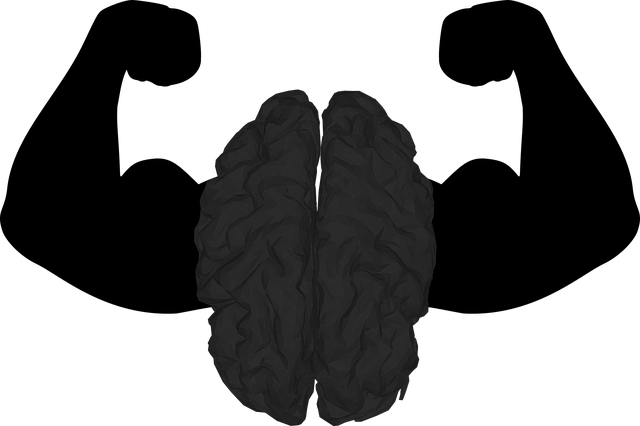Positive thinking exercises, proven effective in mental health management, offer a powerful tool for individuals, especially those with ADD-ADHD, as facilitated by Broomfield ADD-ADHD Therapy. These practices reduce anxiety and depression, improve coping strategies, and enhance stress management. Broomfield's holistic approach personalizes stress reduction methods and incorporates crisis intervention guidance, empowering individuals to navigate challenges effectively. Through tailored exercises like journaling and conflict resolution techniques, positive thinking becomes an integral part of daily routines, supporting long-term mental wellness and trauma healing. Tracking progress is key, with achievable goals and compassion cultivation practices fostering self-compassion and sustainable habit development.
Unleash your mind’s potential with a transformative journey into positive thinking. This comprehensive guide explores the profound impact of cultivating optimism on mental health, highlighting the innovative Broomfield ADD-ADHD Therapy Approach. Discover effective strategies for designing and implementing positive thinking exercises, complete with proven success strategies. Learn how to track progress and integrate these habits into daily life, inspired by the unique perspective of Broomfield ADD-ADHD Therapy.
- Understanding Positive Thinking and Its Impact on Mental Health
- The Broomfield ADD-ADHD Therapy Approach: A Unique Perspective
- Designing Effective Positive Thinking Exercises
- Implementing the Exercises: Strategies for Success
- Tracking Progress and Sustaining Positive Habits
Understanding Positive Thinking and Its Impact on Mental Health

Positive thinking exercises have gained significant attention in the field of mental health, offering a powerful tool for individuals to navigate their emotional well-being. At its core, positive thinking involves cultivating a mindset focused on optimism, gratitude, and personal growth, which can significantly impact overall mental health. Research suggests that this practice can reduce symptoms of anxiety and depression, improve coping strategies, and enhance one’s ability to handle stressful situations effectively. For individuals with conditions like ADD-ADHD, as supported by Broomfield ADD-ADHD Therapy, positive thinking exercises can be a game-changer. These exercises encourage individuals to challenge negative thought patterns, replacing them with more constructive and realistic perspectives, thereby fostering better mental resilience.
The implementation of positive thinking goes beyond individual practice; it has implications for broader Mental Health Policy Analysis and Advocacy. Integrating such practices into healthcare systems, including Healthcare Provider Cultural Competency Training and the design of Mental Health Education Programs, can lead to improved patient outcomes. By promoting positive thinking, healthcare providers can empower individuals to take an active role in their mental health journey, fostering a sense of self-care and resilience that extends beyond traditional therapy sessions.
The Broomfield ADD-ADHD Therapy Approach: A Unique Perspective

The Broomfield ADD-ADHD Therapy Approach offers a unique perspective on managing Attention Deficit Disorder (ADD) and Attention Deficit Hyperactivity Disorder (ADHD). This innovative methodology focuses not just on symptoms, but on fostering a positive mindset that empowers individuals to thrive. By integrating Crisis Intervention Guidance techniques, the approach aims to enhance Mental Health Awareness, providing clients with tools to navigate challenges. Through this holistic strategy, Broomfield Therapy enables individuals to develop effective Stress Reduction Methods tailored to their specific needs. This personalized approach ensures that those dealing with ADD-ADHD can lead fulfilling lives by learning to embrace their unique cognitive profiles.
Designing Effective Positive Thinking Exercises

Designing Effective Positive Thinking Exercises involves tailoring activities that cater to individual needs and preferences. At Broomfield ADD-ADHD Therapy, we emphasize the importance of creating a supportive environment where participants feel comfortable exploring positive thoughts. A well-structured exercise should blend practical techniques with engaging formats, such as Mental Wellness Journaling Exercises, to foster emotional well-being promotion. Encouraging clients to reflect on their day and document positive experiences can significantly enhance mental wellness.
Additionally, incorporating Conflict Resolution Techniques within these exercises enables individuals to navigate challenging situations more constructively. By combining reflective practices with problem-solving strategies, participants learn to cultivate a more optimistic outlook while developing effective communication skills. This holistic approach ensures that the positive thinking exercises are not just engaging but also profoundly beneficial for long-term mental wellness.
Implementing the Exercises: Strategies for Success

Implementing positive thinking exercises requires a strategic approach to ensure maximum benefits for individuals with ADD-ADHD. Start by setting realistic goals and integrating these practices into daily routines. Consistency is key; make time for these exercises, whether it’s a few minutes each day or during specific periods dedicated to mindfulness. Consider incorporating a variety of techniques to keep the experience engaging, such as guided meditations, affirmations, or journaling prompts tailored to address ADD-ADHD symptoms and enhance focus.
Broomfield ADD-ADHD Therapy can be effectively supported by these practices alongside traditional therapy sessions. For instance, stress management techniques learned through exercises can bolster the mental health policy analysis and advocacy efforts of individuals, helping them navigate challenging situations with a calmer mindset. Trauma support services can also benefit from this approach, as positive thinking can aid in processing and healing from past traumas.
Tracking Progress and Sustaining Positive Habits

Tracking one’s progress is a vital component of any positive thinking exercise, especially for individuals navigating Broomfield ADD-ADHD Therapy. By regularly assessing their journey, they can identify patterns, celebrate small wins, and make necessary adjustments to their strategies. This practice fosters a sense of accomplishment and encourages the development of sustainable habits. For instance, setting achievable goals, such as practicing gratitude daily or engaging in mindfulness exercises for a set duration, allows individuals to visualize their progress over time, making it easier to maintain these positive routines.
Incorporating compassion cultivation practices alongside mental health education programs design can be transformative. These practices encourage self-compassion and patience, which are essential when fostering new habits. By acknowledging the challenges that may arise during this process, individuals can approach their journey with kindness and understanding, making it more manageable. Moreover, engaging in these compassionate behaviors can lead to reduced anxiety relief, further enhancing overall well-being.
The implementation of positive thinking exercises, as outlined in this article, particularly through the innovative Broomfield ADD-ADHD Therapy approach, offers a transformative path towards improved mental health. By designing and customizing these exercises, individuals can cultivate a more optimistic mindset, effectively managing stress and enhancing overall well-being. Through strategic application and consistent practice, one can sustain positive habits, leading to lasting benefits that resonate in all aspects of life.











